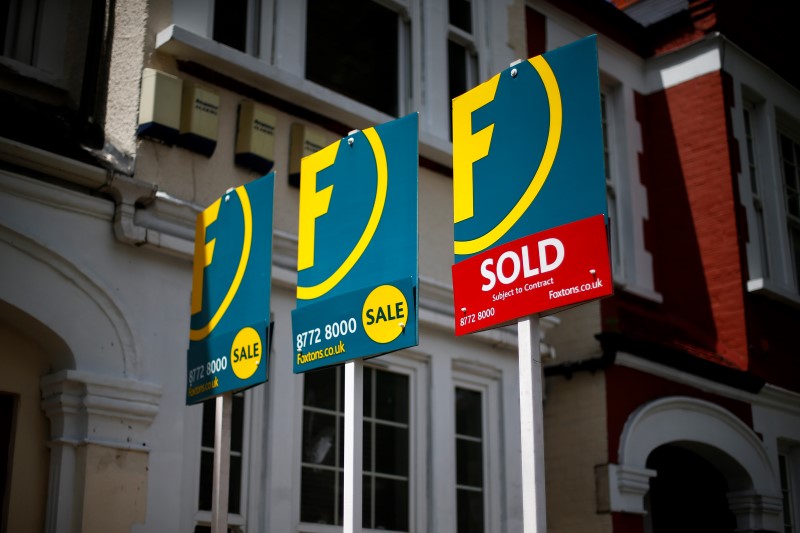LONDON (Reuters) - British house prices fell more sharply than expected last month after the introduction of a new tax on the purchase of rental properties and the market might be entering a cooler phase, mortgage lender Halifax said on Monday.
House prices slipped by a monthly 0.8 percent in April following a 2.2 percent leap in March.
Economists taking part in a Reuters poll of economists had expected a fall of 0.4 percent.
Compared with the same period last year, house prices rose by 9.2 percent in the three months to April, the slowest rise since November and down from an increase of 10.1 percent in the three months to March.
Rival mortgage lender Nationwide has also previously reported a slowdown in house price growth in April.
Separately on Monday, Nationwide announced it was raising the maximum age limit for its mortgages from 75 years to 85 to reflect Britain's ageing population with many workers putting off retirement. Halifax raised its age limit to 80 last week.
Finance minister George Osborne announced in November that landlords acquiring buy-to-let properties, as well as people buying second homes, would pay a new, 3-percent surcharge from April 1 in an attempt to help first-time buyers who have struggled to cope with the sharp pace of house price growth.
Martin Ellis, an economist at Halifax, said the persistent shortage of homes on the market, combined with low mortgage rates and rising earnings mean house prices would continue to rise in the coming months.
"However, weakening sentiment regarding house price prospects and a dip in consumer confidence suggest that annual house price growth may ease," he said.
Osborne said on Sunday that house prices could take a "significant hit" if the country votes to leave the European Union in a referendum on June 23.
Nationwide, in raising its maximum age limit, said it would offer the mortgages at up to 60 percent of the value of a property and cap them at 150,000 pounds.
Halifax said on Monday the average house price in Britain stood at 212,321 pounds ($306,039.49).

(The story deletes extraneous material in paragraph 11)